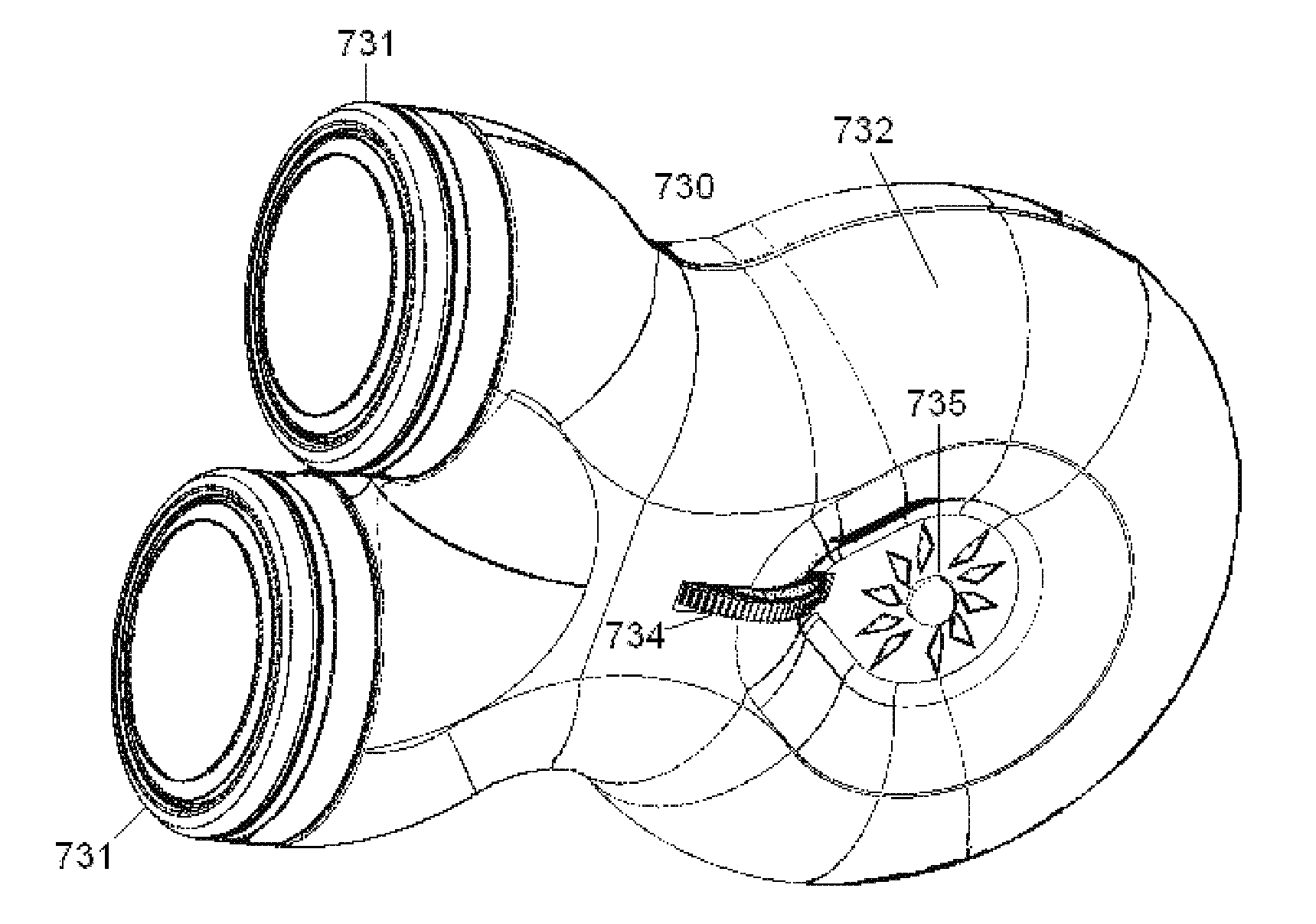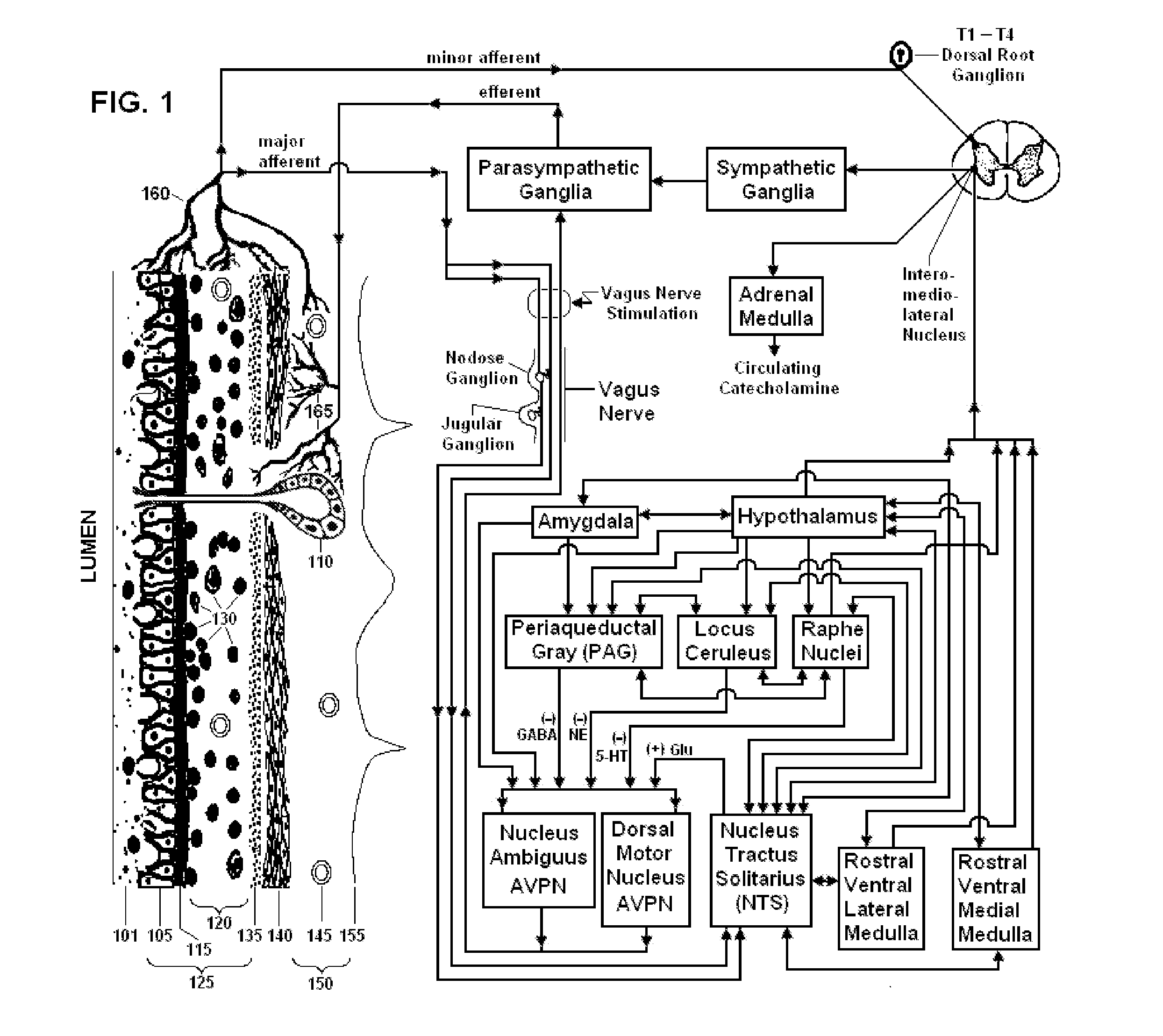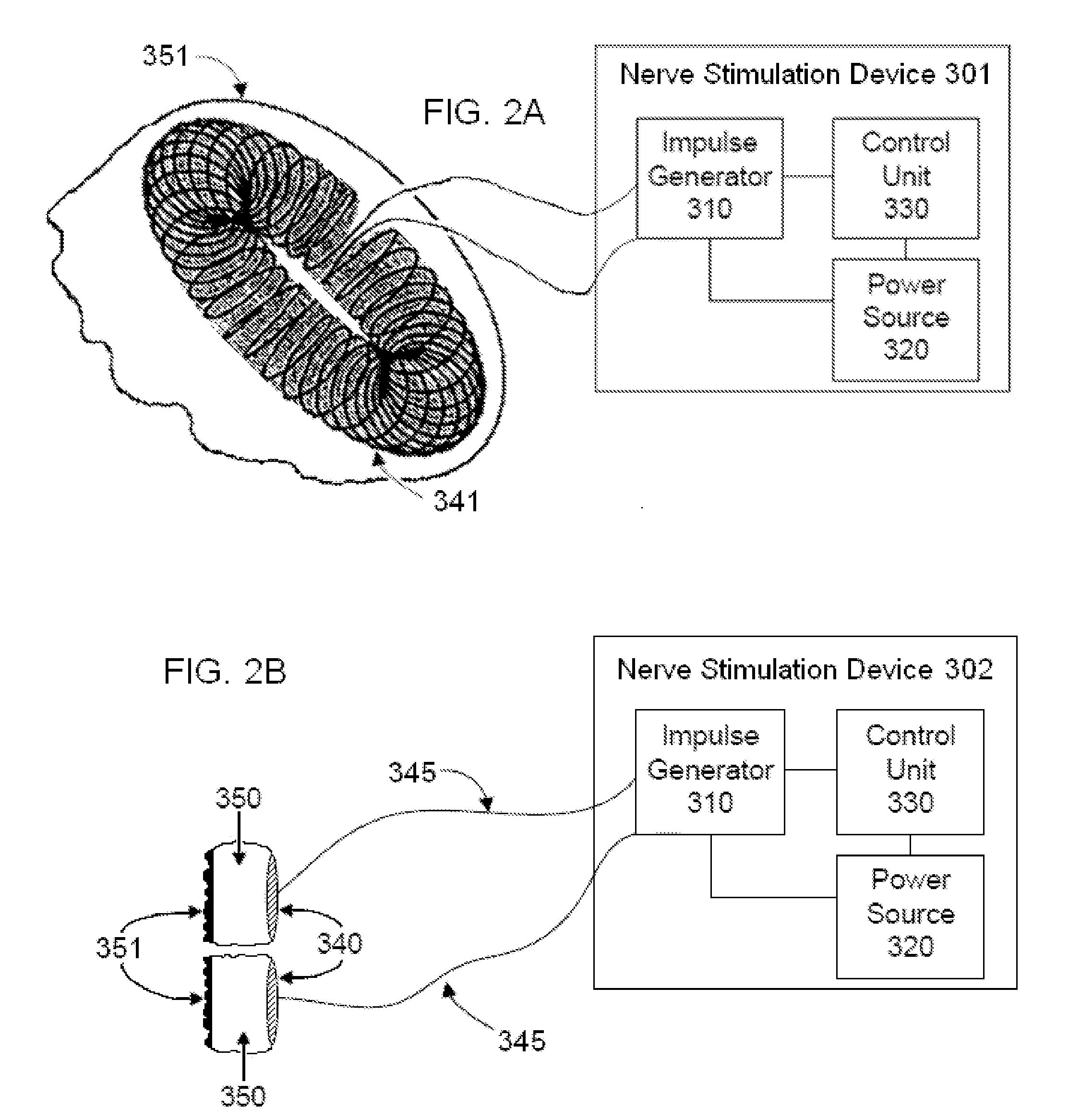Non-invasive vagal nerve stimulation to treat disorders
a vagal nerve and non-invasive technology, applied in the field of non-invasive vagal nerve stimulation to treat disorders, can solve the problems of excessive excitatory neurotransmitter levels, and excessive excitatory neurotransmitter levels, and achieve the effect of reducing the magnitude of bronchial constriction in the patien
- Summary
- Abstract
- Description
- Claims
- Application Information
AI Technical Summary
Benefits of technology
Problems solved by technology
Method used
Image
Examples
Embodiment Construction
[0064]Once air is inhaled through the mouth or nose, it travels through the trachea and a progressively bifurcating system of bronchi (containing cartilage) and bronchioles (which contain little or no cartilage), until it finally reaches the alveoli, where the gas exchange of carbon dioxide and oxygen takes place. Through constriction or relaxation of smooth muscle within their walls, the bronchioles change diameter to either reduce or increase air flow. The bronchioles between the fourth and eighth bifurcation are thought to be most important in that regard. Normally, an increase in diameter (bronchodilation) to increase air flow is stimulated by circulating epinephrine (adrenaline) or sympathetic nerve fibers or so-called iNANC nerve fibers, and a decrease in diameter (bronchoconstriction) is stimulated by parasympathetic cholinergic nerve fibers, histamine, cold air, and chemical irritants. Reflexes have evolved to regulate the caliber of bronchioles, in which afferent nerves sen...
PUM
 Login to View More
Login to View More Abstract
Description
Claims
Application Information
 Login to View More
Login to View More - R&D
- Intellectual Property
- Life Sciences
- Materials
- Tech Scout
- Unparalleled Data Quality
- Higher Quality Content
- 60% Fewer Hallucinations
Browse by: Latest US Patents, China's latest patents, Technical Efficacy Thesaurus, Application Domain, Technology Topic, Popular Technical Reports.
© 2025 PatSnap. All rights reserved.Legal|Privacy policy|Modern Slavery Act Transparency Statement|Sitemap|About US| Contact US: help@patsnap.com



